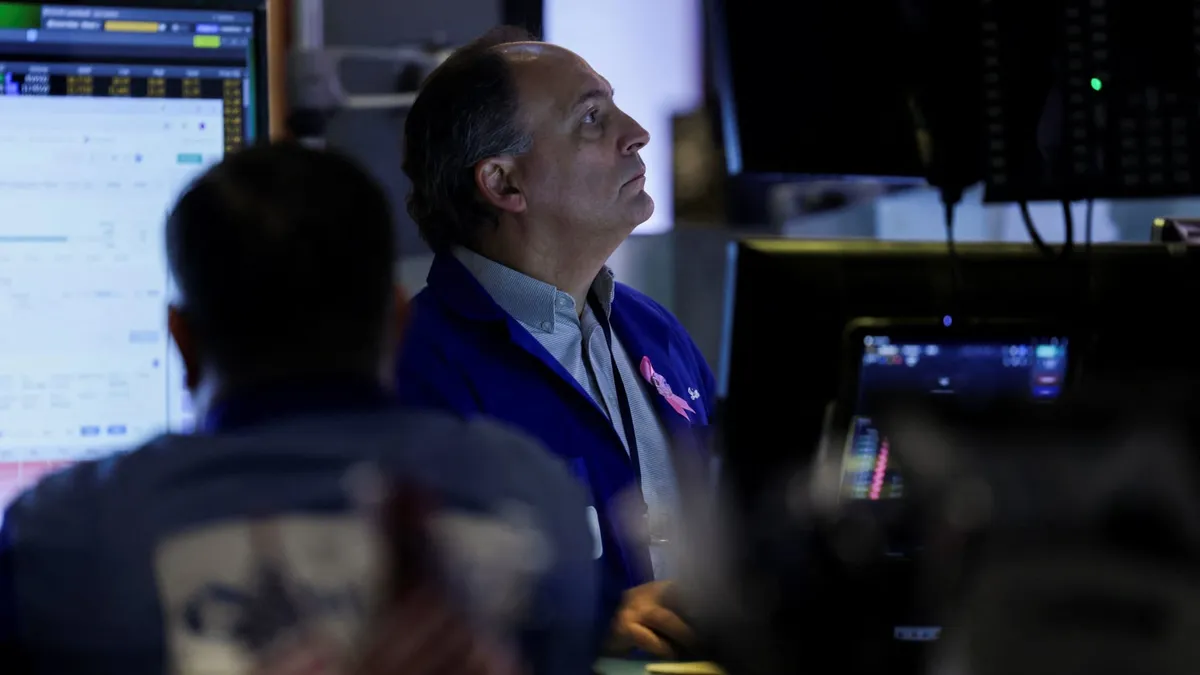
On Thursday night, U.S. stock futures experienced a slight decline following a previous session marked by a sell-off attributed to worries surrounding regional banks' loan practices. Futures associated with the Dow Jones Industrial Average fell by 153 points, reflecting a drop of 0.33%. Additionally, futures for the S&P 500 and Nasdaq 100 both decreased by more than 0.5%.
In after-hours trading, Interactive Brokers Group saw its shares decline by over 2% despite reporting robust quarterly results. Similarly, Oracle experienced a dip of more than 2% after providing analysts with its long-term financial outlook. The pharmaceutical giants Eli Lilly and Novo Nordisk also faced downward pressure following comments from President Donald Trump during a briefing on fertility treatments, where he suggested that the administration was negotiating significantly lower prices for their popular obesity drugs.
All major U.S. stock indexes finished in the red on Wednesday, primarily due to a sharp decline in bank stocks late in the trading session. The Dow dropped 301.07 points, or 0.7%, while the S&P 500 and Nasdaq Composite ended down 0.6% and 0.5%, respectively. The decline in shares of several financial heavyweights and regional banking institutions was triggered by Zions and Western Alliance revealing issues related to bad loans, raising concerns about lax lending practices and the potential for similar problems to emerge.
The SPDR S&P Regional Banking ETF (KRE), which has been on a downward trend for four consecutive weeks, suffered a loss of more than 6% during the session. Growing unease in the banking sector has been exacerbated by the recent bankruptcies of two auto industry-related companies. On Friday, investors will have another opportunity to assess the health of regional banks, with a number of companies, including Comerica and Fifth Third, scheduled to report their earnings.
Wednesday also witnessed a spike in the Cboe Volatility Index, commonly known as Wall Street's fear gauge, alongside a decline in Treasury yields and the U.S. dollar. In contrast, gold prices surged to new records, indicating sustained interest in this safe-haven asset amidst widespread market uncertainty.
Liz Ann Sonders, chief investment strategist at Charles Schwab, discussed the banking concerns on CNBC's Closing Bell, noting that these issues arise amid significant speculative froth in the public market. Investors have been gravitating toward riskier stocks, including those in quantum computing, drones, and unprofitable tech sectors. Sonders emphasized that when speculative froth coincides with broader potential issues, it can lead to increased market volatility. She pointed out that much of this froth is no longer present in major megacap stocks, but rather in smaller segments of the market, such as the Russell 2000 index, which reached a new high on Wednesday.
In addition to banking sector worries, ongoing tensions regarding global trade and tariff policies, elevated market valuations driven by the artificial intelligence boom, and the ramifications of the prolonged U.S. government shutdown continue to loom large. The shutdown, now in its third week, has led to an indefinite pause in the release of critical economic data from federal agencies, further contributing to market uncertainty.